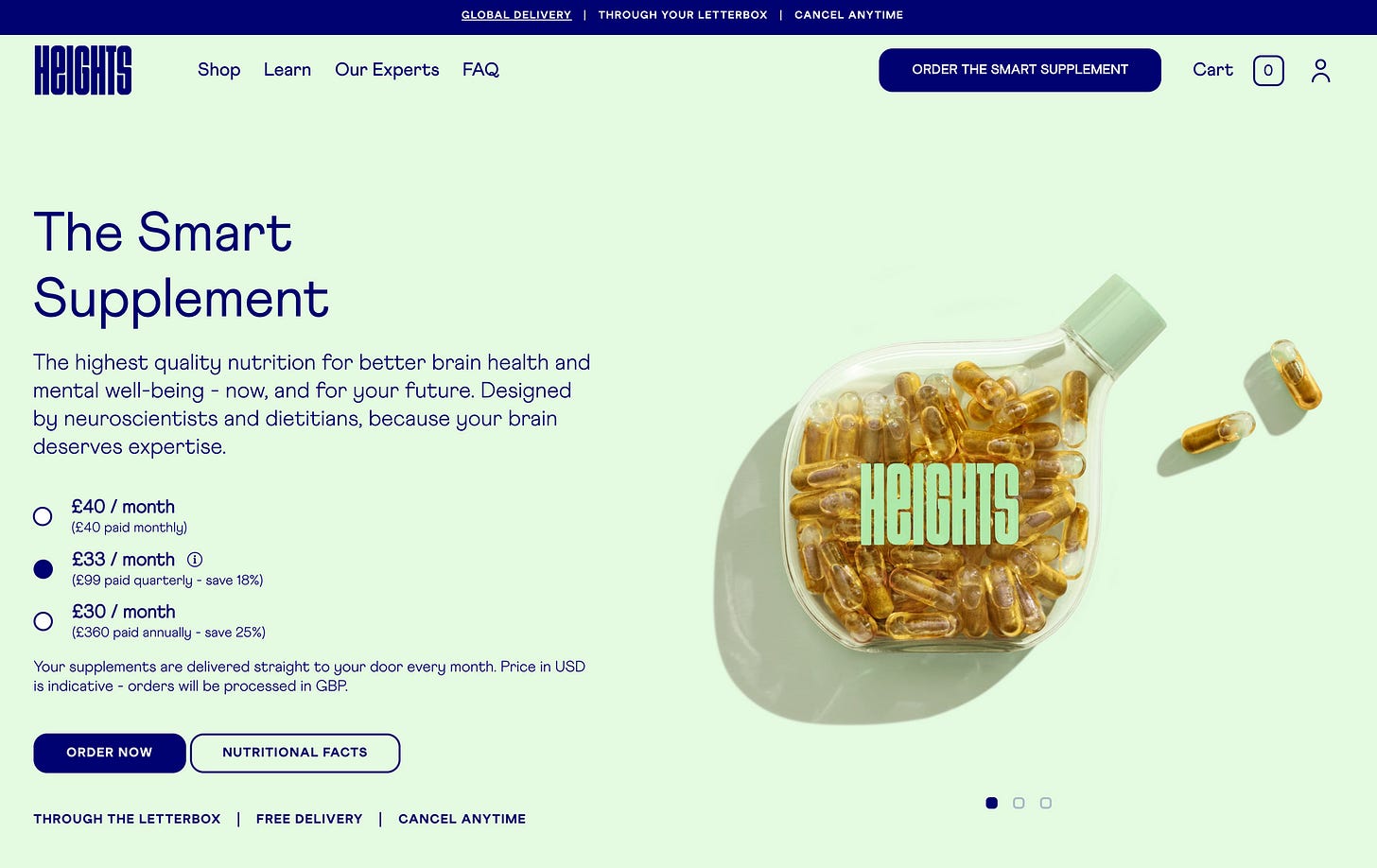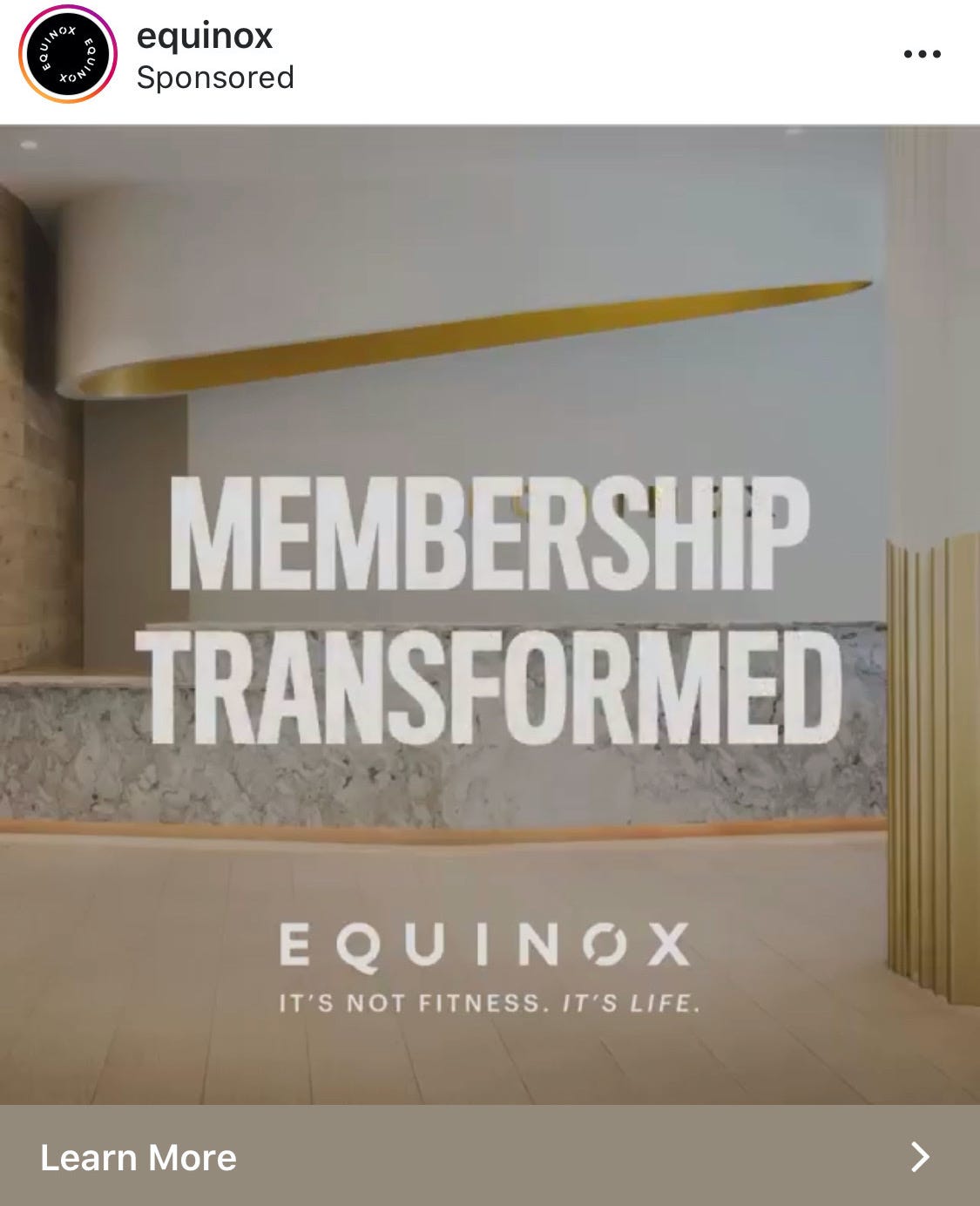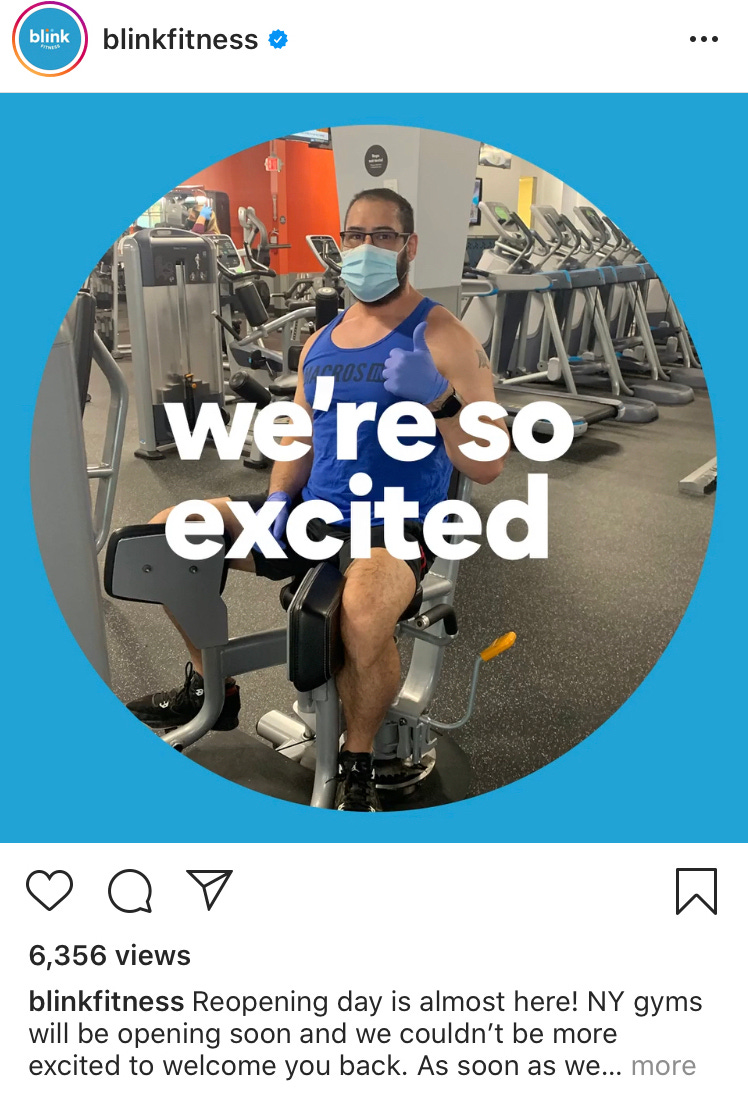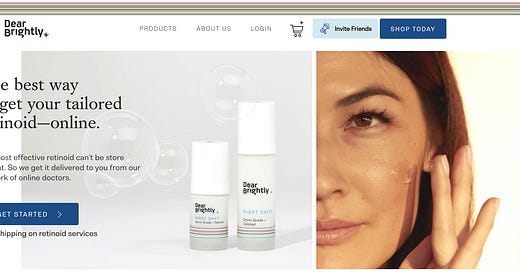
A newsletter about branding, startups, and mission-driven companies aiming to make the world a better place.
👋 Welcome to issue #10 of For The Love, I’m so happy to have you all here, including the 116 new subscribers! And thank you to Leanluxe for sharing last week’s article.
Today we’ll be discussing:
Part 2 of a deep-dive into whether wellness brands deliver on…wellness.
A roundup of the very few things that launched this week, because long weekend.
Gyms have reopened in NY and they’ve made some changes.
If you have any curious friends that like learning about new brands and DTC trends, please share For The Love.
⚡ For The Love of Branding
Google multivitamins and you will find a lot of conflicting information. The advice ranges from highly recommended to waste of money.
Both can be true—it largely depends on you.
According to dietitian, Sophie Medlin (who, last week, taught us the dangers of drinking charcoal):
“If you’re eating a balanced diet, managing to have oily fish, plenty of fruit and veg, as well as nuts and pulses and some animal proteins, you are unlikely to need a vitamin supplement. Many people struggle to achieve this due to the pressures of modern life or dietary choices and in those cases, a vitamin supplement can offer a safety net to ensure they still get all the nutrition they need.”
Given all the time we’ve been spending inside, I’m guessing a fair amount of us could use a boost of vitamin D—and that’s really the point. Vitamins perhaps shouldn’t be needed, but for many of us, life isn’t always optimized around health.
Heights, a “smart supplement” providing “the highest quality nutrition for better brain health and mental well-being,” includes vitamin D and many other nutrients they found lacking when they “examined urban lifestyles”.
And in case you’re wondering about where they’re getting the science, in addition to Sophie Medlin, their board of scientific advisers includes a neuroscientist, a sleep scientist, a doctor specializing in gut health, a neuropharmacologist “Chief Science Officer,” and a medical doctor “Chief Wellness Officer.”
Assembling medical advisors at least signals a commitment to science—as it seems unlikely someone not named Oz would risk their entire medical career to peddle pseudoscience.
This foundation in science can also be seen in their branding. Their logo “takes its influence from the brain's squiggly and stretchy form,” according to co-founder Dan Murray-Serter, while the deep, saturated blue and minty green palette add a playful element.
As for that unique bottle shape—it’s designed to dispense one pill at a time (novel, I know!) with an elevated aesthetic at home in any #shelfie.

Instagram aside there’s a more practical reason for this—if the bottle is kept in a visible place you’re more likely to remember to take the supplement. And consistency is key to build-up and keep your nutrients at optimal levels.
In addition to relying on past research of their ingredients, Heights is putting their product to the test—they’re recruiting 16 customers to take part in a public research project where they’ll track nutrient levels, mood, and energy over three months. It’s a small trial-size but shows how confident they are in their product by testing it in such a public way.
Hilma, a line of “natural remedies, formulated with doctors,” is also running their own clinical trial—with a 100-person test group over the past year and a half (the results will be released in three weeks). Hilma co-founder Nina Mullen elaborated:
“There is a lot of science that has been done in the herbal and holistic medicine space. There are entire cultures and countries that use herbal and natural medicine very effectively and have a lot of research around them but the science isn’t really being brought to bear in the US in a way that consumers can trust...We are investing in our product and contributing to the body of natural products research, which tends to be an underfunded segment.”
Hilma uses only ingredients that have “demonstrated efficacy for the use cases we use them for.” For instance, their Upset Stomach Relief includes chamomile—an ingredient many people look to when they have an upset stomach already, in the form of tea, and has been the subject of a number of clinical trials.
And they enlisted a group of scientists to make sure their product was developed with this ethos in mind—you can see their team of medical professionals on the “Our Science” page of their website.
Like Heights, Hilma’s branding features nods to science (lines mimicking those found on beakers) with a human focus. Their website is awash in tones reminiscent of nature (lavender, forest green, and dandelion), and their sans-serif font is clean, with a touch of personality.

“We are dealing with people's health so we had to be very caring, nurturing, and approachable, but we also had to be authoritative because we are a science-related product, so we wanted that balance.”
Each product page features a detailed list of ingredients, why they are included, and how extensively each has been studied, all in clear language—authoritative and approachable.
Dear Brightly, a line of science-backed skincare, speaks to their customer in a similar way. Their messaging is clear and conversational—that of a skincare-obsessed friend who has all the answers.
As co-founder Amy Chiu explained to me:
“In everything we do we try to distill things down to—‘what are the most important things that dermatologists agree everyone should be using?’ and ‘what are the most important things people should know?’ We try to simplify everything so people can really understand...Basically communicating the truth to people.”
Their landing page clearly describes why their hero ingredient, derm-grade Tretinoin Retinoid, is effective, what it does, and why it’s better than the store-bought version. And with the use of charming illustrations.
Navigate to the about page and you’ll see the profiles of two doctors that back-up their scientific claims, and an even deeper dive into their active ingredient—one that has been studied for the past 40 years and has been recognized by the FDA as both a treatment for acne and photoaging.
And if that’s not enough science for you, the purchase process actually involves a virtual doctor consult.
The overall branding has the veneer of a modern doctor’s office, but friendly.
There’s a rainbow detail reiterated throughout the site and packaging that illustrates “that every skin is different. It’s inviting and welcoming and represents people of all different ages and skin...Tretinoin is agnostic to sex, and race. It's not prejudiced against certain people. It's for everyone,” Amy told me.

We’ve now seen the good and the bad (none of them ugly)—so how can you tell if a product actually delivers on its claims?
Here’s a hint. (If it wasn’t obvious already.)
Look for the science.
If a company has, in fact, consulted scientists in the development of their product (and took their advice) those scientists will be listed on their website. Most of them are practicing medical professionals with visible credentials. They’re letting consumers decide if they are a trusted source.
There will also be supporting information *clearly* visible. You won’t have to go searching around in the small print to see ingredients and what they do. In fact, there should be information throughout their website and social channels.
Think about this way—if a brand’s products are effective, they’ll want you to know it.
"The good thing about science is that it’s true whether or not you believe in it."—Neil DeGrasse Tyson
🔥 For The Love of Newness
Oova launched a test to “decode your hormones and give you personalized steps to get pregnant.”
Sugarbreak launched three all-natural products to help manage your blood sugar.
Rolls Royce got a makeover, care of Pentagram.
Lego and Ikea teamed up to make storage you can play with.
🔍 For The Love of the Details
NYC gyms are back open and they’re each handling the new regulations in their own special way.

Equinox is now staffed by ghosts.

Crunch is now a gym for dogs.

Planet Fitness is recommending some interesting PPE.

One thing’s for sure—they are all very excited. Can’t you tell?
Thank you for being part of For The Love and Happy Labor Day!
A few more things...
Is there a topic you think I should cover? Or a funny ad I can dissect? I’d love to hear from you! You can email me at info@ajasinger.com, respond to this email, or drop it in the comments ⬇
Know someone who’d enjoy this newsletter?
Was this newsletter forwarded to you?
Written by Aja Singer, a brand and creative strategy consultant interested in all things startup, mission-driven, and community. Born in Canada. Based in Brooklyn. You can also find me on Instagram and Twitter.



